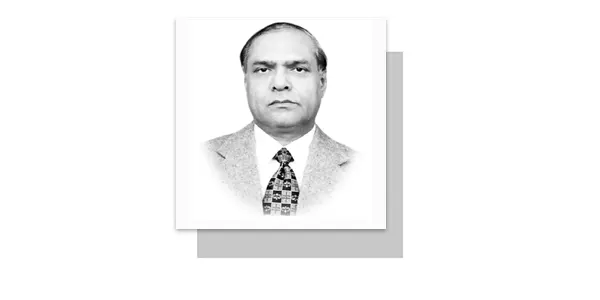TWO fundamental characteristics which define a person are whether he is a liar or truthful. His /her worth in society, at home, in neighbourhood, in dealing with other people depends on this crucial and important aspect of everyday life. A truthful person earns respect from people, based on this virtue while a liar is not only disrespected (sometimes openly) but at times hated by the people in their hearts and minds. Telling lies is the biggest social evil which we are witnessing today. People thrive on telling lies and feel happy about it, not realising the implications it makes on their character, reputation, relationships and state of mind. A liar is always disturbed, perturbed, shaky and disrespected in society, once his/her traits become known to others. For one lie he/she speaks, one has to tell 10 miles lies to cover it up. Truth is such a powerful tool that when we talk about justice, it is truth which is in action. According to Socrates the greatest murder is killing the truth. Lies are always unethical and detrimental to self and others.
Implications of telling lies at individual level and by group/groups of people are far-reaching. In a truthful society, people believe the word of mouth and there is no need to prove that what you have said needs to be proved. Since generally majority of the people in a particular society and country speak truth the whole nation develops and nurtures the reputation of a truthful nation. Their Leaders/politicians at public level, are, therefore, always careful in making promises as they know they have to accomplish what they have promised. Those who make phony promises are not only rejected at the poles but it casts them their career. Such Leaders not only distorts their image instantly but they lose the confidence of the people, they govern. Masses brand them as opportunists and Liars.
But there are people who are qualified in lies and bending the truth according to their convenience. Truths are converted into lies and lies into the truth. They create an impression in the organization and society that they have relevant information with them but nobody knows that the said information is not truth. For them perceptions, data, deceiving knowledge are truth. They will ensure the damage to the people around, society and the organization for their personal agenda. Truth is the state of being in agreement with fact or reality, while a lie is a false statement made with the intent to deceive. However, the concept of what constitutes a “fact” or “reality” can vary depending on one’s perspective, and the morality of lying can depend on the context in which it occurs.
In any case, it is important to weigh the potential consequences of one’s actions before deciding whether or not to tell a lie. The truth may be uncomfortable or difficult to hear, but it is ultimately the foundation of trust and understanding in any relationship or situation. Conventional truth or conventional reality refers to the commonly accepted facts or beliefs that are considered to be true within a particular culture or society. These truths are often taken for granted and are not subject to question or doubt. For example, it is generally accepted as true that the earth is oval and that gravity is a force that pulls objects towards the centre of the earth. These are considered Conventional truth as they are widely accepted as true within that culture and are not typically questioned.
Practical truth is the idea that truth can be relative and flexible depending on the situation. It’s the understanding that in certain situations, it may be more beneficial to bend the truth or withhold certain information. This concept is often used in business, politics, and personal relationships. In personal relationships, practical truth be used to avoid conflict, protect someone’s feelings, or maintain a sense of harmony. For example, a friend may choose not to tell another friend that they’re not invited to a party to avoid hurt feelings. While practical truth can be used as a tool to navigate difficult situations, it’s important to use it responsibly. It’s not appropriate to use it to deceive, manipulate, or harm others. It’s also important to be aware of the potential consequences of bending the truth. If a lie is uncovered, it can lead to mistrust and damage relationships.
Contextual truth is the idea that truth can change, based on the context or situation. It’s the understanding that what is true in one situation may not be true in another. This concept is often used in philosophy, religion, and psychology. In philosophy, it is used to argue that truth is not absolute, but rather a matter of perspective. For example, a philosopher might argue that what is true for one person may not be true for another. This idea is often associated with relativism, the belief that there is no universal truth. In psychology it is used to argue that the truth of an individual’s experience may change depending on the context. This idea is often associated with the concept of cognitive dissonance, the psychological state of discomfort when holding two or more conflicting beliefs.
In the backdrop of above discussion let us examine the behaviour, character and general reputation of an average Pakistani. Unfortunately the tendency of telling lies has crept into our society. The Government machinery does not tell the truth about state of economy to the public. Figures are concocted, fabricated and manipulated to show a rosy picture to the people. The traders tend to cheat buyers of merchandise they wish to sale. At every level and in every segment of society, unfortunately we come across lies and liars. This is immensely hurting the general reputation and image of country abroad. We must shun this bad habit and like a true Muslim be truthful always.
—The writer is Former Civil Servant and Consultant (ILO) & International Organisation for Migration.
Email: mughal_rashid@hotmail.com










